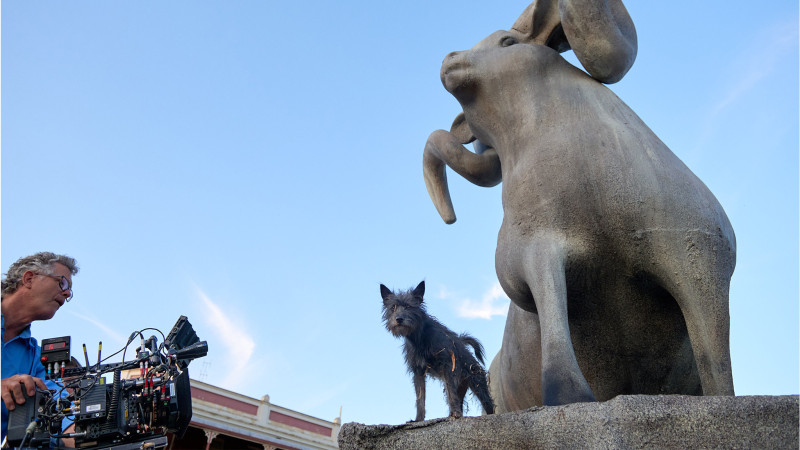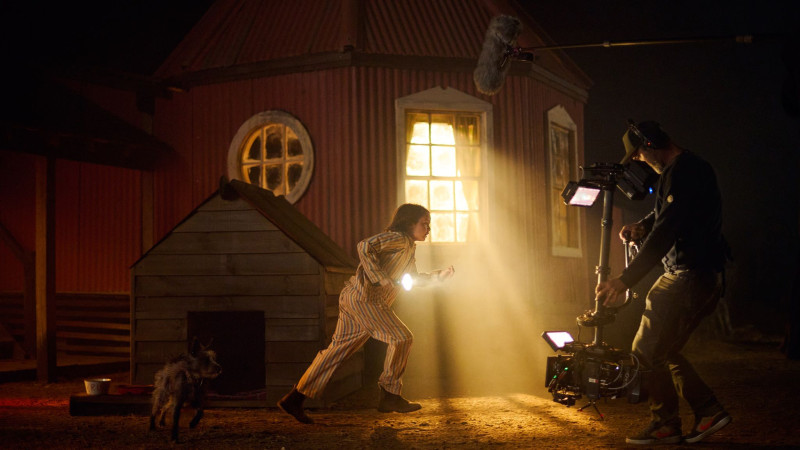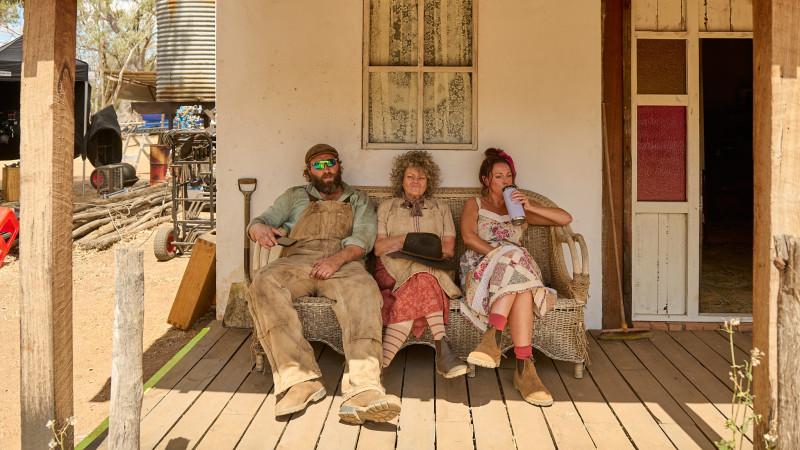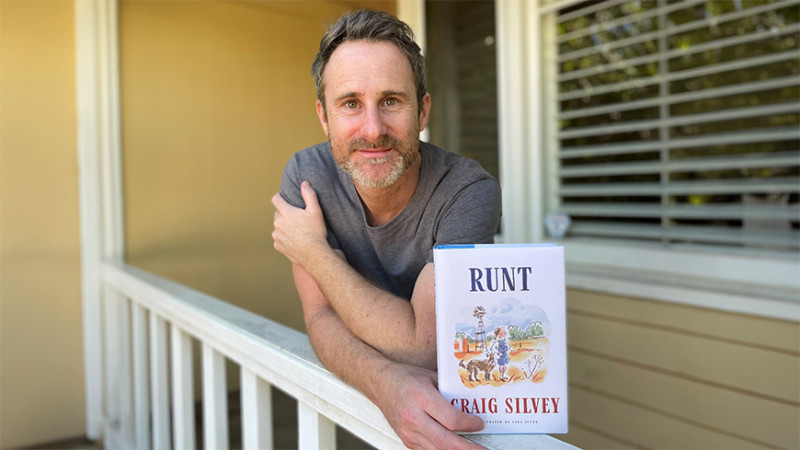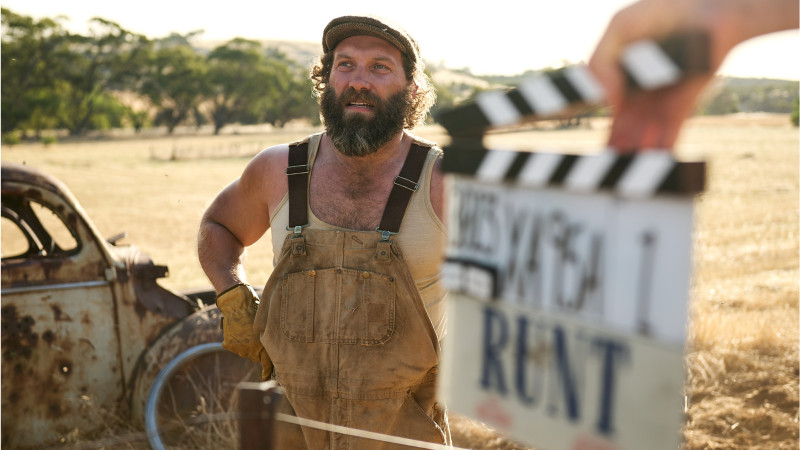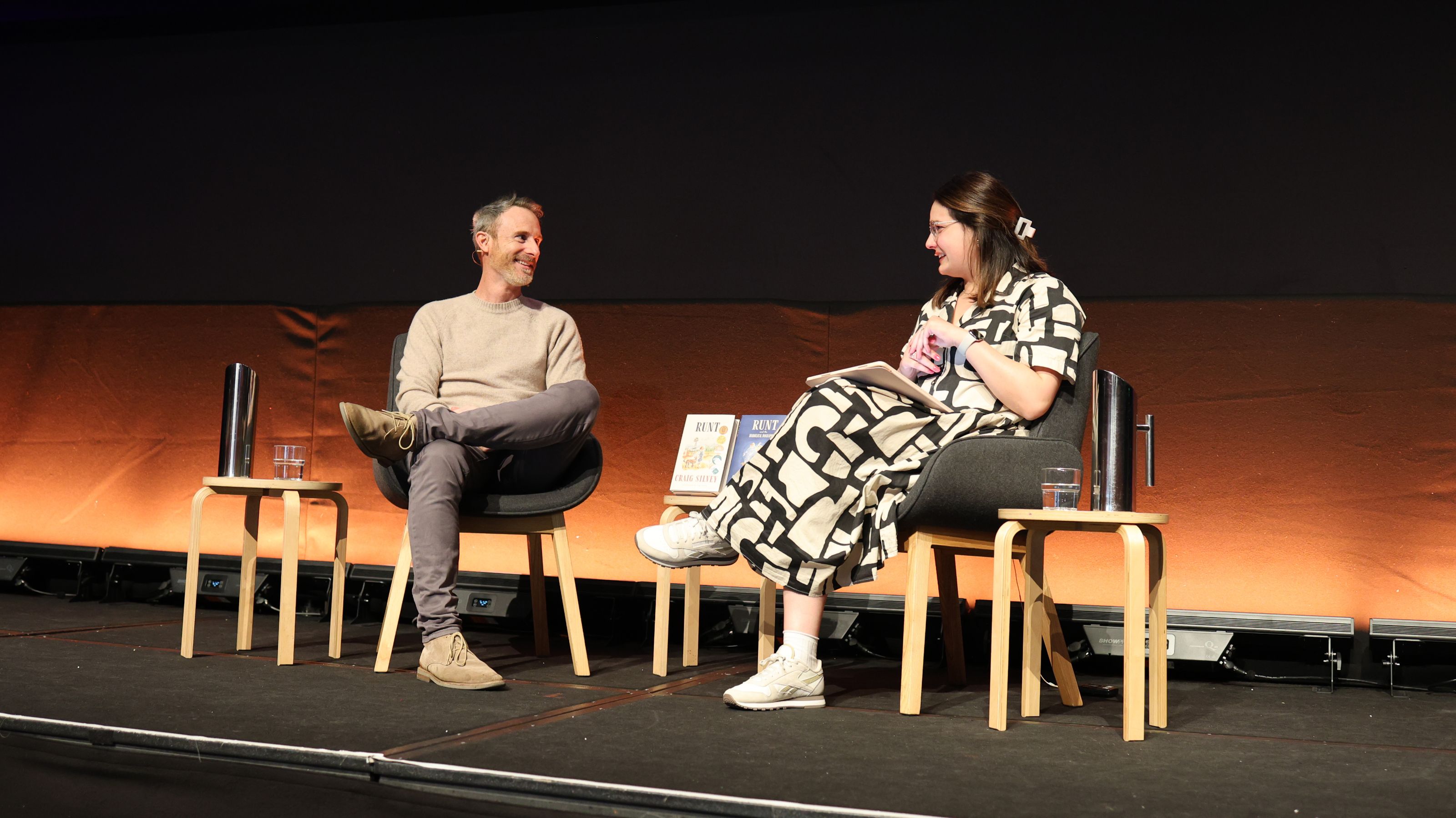
Writing RUNT with Craig Silvey

In this Q&A session, Craig takes students behind the scenes of RUNT, a heartwarming and adventurous film about eleven-year-old Annie Shearer and her loyal dog Runt, who team up to save their family farm in the country town of Upson Downs. Aimed at Years 3 – 6, the session explores Craig’s writing process and the journey of adapting his novel for the screen, offering young storytellers valuable insights into narrative, character development and screenwriting, while learning from one of Australia’s most celebrated writers.
Recommended preparation
-
Before watching the film
Before watching the film, discuss the book cover, film poster and trailer.
Watch Writing RUNT with Craig Silvey
Please be advised that this video contains spoilers for Runt the book and film.
Teacher feedback
We’d love to hear what you thought of the session - your feedback helps us keep creating free, meaningful experiences like this for students and teachers across Australia. You can access the feedback form here.
RUNT Education Resource
-
-
The underdog story
Use this lesson to identify key elements of the underdog story and map Annie Shearer's journey in RUNT.
-
Resilience
Work through this lesson to examine how members of the Shearer family show resilience.
-
Family and friends
Explore the themes of family and friendship by mapping key relationships and their impact on Annie.
-
Page-to-screen
Compare scenes from the novel and film to analyse the different storytelling techniques.
-
Identity
Analyse character development by comparing Annie and other key characters' growth throughout the film.
Australian Curriculum Links
|
Language |
||||
|
Literature |
||||
|
Literacy |
|
Inquiring |
• Questions developed support the process of improving knowledge and understanding about a topic or investigation. • Identify and examine relevant information and opinion from a range of sources, including visual information and digital sources. |
• Questions developed focus on improving understanding about a topic and clarifying information about processes or procedures. • Identify and examine relevant information and opinion from a range of sources, including visual information and digital sources. |
||
|
Generating |
• Create possibilities by connecting or creatively expanding on new and known ideas in a variety of ways. • Put ideas into action by predicting an outcome, trialling options and assessing their effectiveness. |
• Create possibilities by changing, combining, or elaborating on new and known ideas in a variety of creative ways. • Put ideas into action by predicting potential or future outcomes and systematically testing a range of options. |
||
|
Analysing |
• Draw conclusions and make choices when completing tasks, using observation and prior knowledge to provide reasons and construct arguments for choices made. • Evaluate the effectiveness of a course of action or the outcome of a task, including using a given or co-developed set of criteria to support decisions. |
• Draw conclusions and make choices when completing tasks, using discipline knowledge to provide reasons and evaluate arguments for choices made. • Evaluate the effectiveness of a course of action or the outcome of a task, including using a given or co-developed set of criteria to support decisions. |
||
|
Reflecting |
• Select, describe and reflect on the thinking and learning strategies and processes used when completing activities and drawing conclusions. • Use aspects of knowledge and skills gained in one setting to inform learning in a new setting or context. |
• Identify and reflect on thinking and assumptions when completing activities or drawing conclusions. • Apply aspects of knowledge and skills gained in one context to a new or unrelated context to achieve a specific purpose. |
||
|
Exploring and responding |
|
|
This event was co-developed by the ACTF and ACMI.



